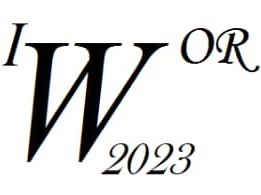Ponente
Descripción
Abstract:
Simple phenomenological growth models have been widely used to understand the dynamics of the COVID-19 pandemic as well as to predict future trends and assess intervention strategies forecasting epidemic trajectories. However, most existing phenomenological growth models only support single peak outbreak dynamics whereas real epidemics often display more complex transmission trajectories. Infection patterns during Covid pandemic illustrates the need for models that can capture dynamics beyond a single-peak trajectory to forecast the Covid-19 spread. Here, firstly, we describe the sub-epidemic modeling framework that supports a diversity of epidemic trajectories including stable incidence patterns with sustained or damped oscillations to better understand and forecast epidemic outbreaks. Then, we apply the approach to provide a simple characterization of the developing trajectories and generate sequential short-term forecasts for the COVID-19 pandemic in Cuba in the period from November 2020 to April 2021. The sub-epidemic wave model outperforms simpler growth models in calibration and short-term forecasts based on performance metrics that account for the uncertainty of the predictions namely the mean interval score (MIS) and the coverage of the 95% prediction interval. Short–term forecast generated by the exposed methodology constitute a valuable tool for public health decision-makers to better understand and predict the underlying transmission dynamics of COVID-19 as early detection of potential sub-epidemics can inform model-based decisions for tighter distancing controls and to guide in the allocation of critical resources necessary to control the epidemic and to respond to future infectious disease outbreaks.
Keywords: Covid-19, dynamic phenomenological model, uncertainty, sub-epidemic model, forecasts.

